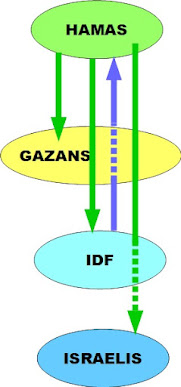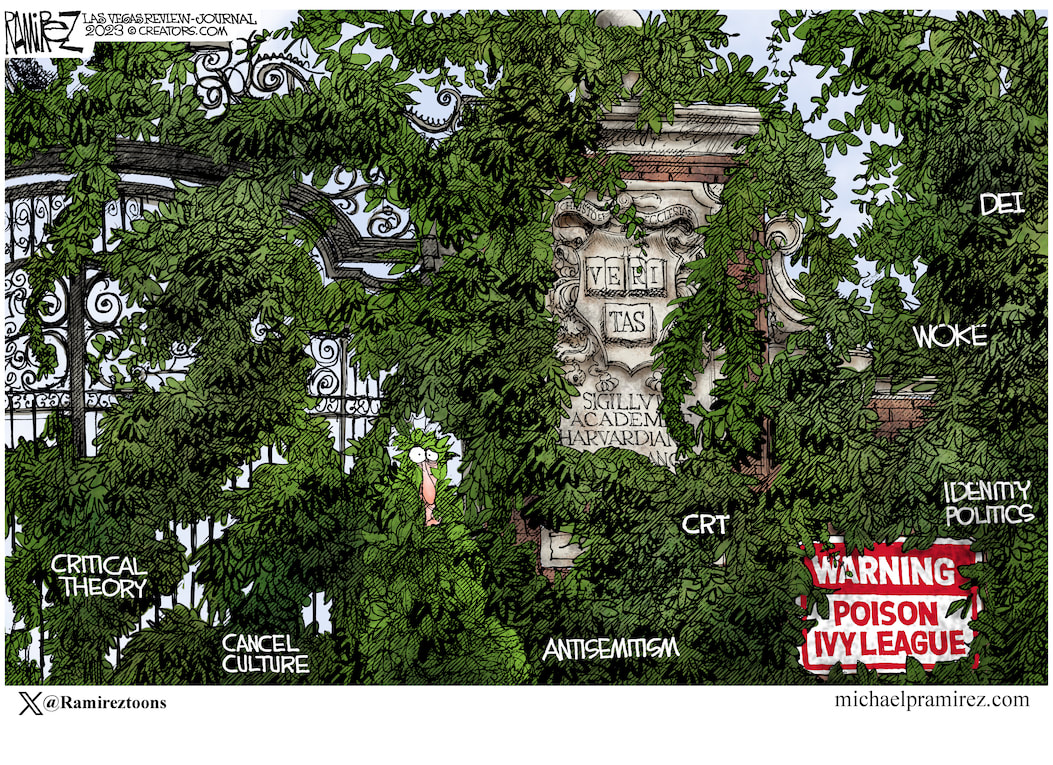Jake Wallis Simons: The year Israelophobia took over
As the end of the year draws close, it’s clear the oldest hatred is back with a vengeance.Seth Mandel: The Press Has Lost Its Mind, Experts Say
Following Hamas’s pogrom in Israel on 7 October, and Israel’s assault on Hamas in response, every day has brought new examples of Israelophobia. One episode from December that stands out in my mind was a statement from the Catholic Archbishop of Westminster, Cardinal Vincent Nichols. He said that the Jewish state had shot two women in a church in Gaza ‘in a cold-blooded killing’. But how did the clergyman, from the comfort of his home in London and having carried out no investigation, know with such certainty that it was a ‘cold-blooded killing’?
Similarly, Alex Crawford, Sky News’ most prominent foreign correspondent, tweeted at the start of December that Israel was barring entry for journalists into Gaza in order to hide its ‘war crimes’. Charges of ‘war crimes’ would need to be proven by a court of law. Yet without even being in Gaza, and presumably without any legal training, Crawford felt entitled to place the black cap of the hanging judge upon her head.
The ease with which supposedly impartial observers have unwittingly become activists belies something darker – the willingness to believe the very worst of the Jewish State. It has become commonplace to airily assert that Israel is committing ‘genocide’. And it has become commonplace to talk of its disregard for Palestinian life, especially the life of Palestinian children. Little wonder the fate of neonatal babies has been placed by Hamas at the very centre of its propaganda campaign. Hamas knows this will be lapped up by the world’s media. Why is this? Could it be because there has been a racist association between Jews and the murder of Gentile children since 1144, when the blood libel was invented in Norwich? Whether people realise it or not, the Israelophobia we see today contains dark echoes of an old anti-Semitism.
The rivers of anti-Semitism run deep. Fascinating research by two German economic historians, Nico Voigtländer and Hans-Joachim Voth, has revealed that areas of Germany in which people burned Jews at the stake in the 14th century, blaming them for the Black Death, were more likely to vote for the Nazis 600 years later. This is despite the fact that Jews had been absent from the regions in question for 400 of those years. This illustrates how, once it has taken hold, the potent virus of anti-Semitism can be passed down through the generations, inclining people to believe stories, as George Orwell once put it, ‘that could not possibly be true’.
You may have noticed that anti-Israel media bias has gotten markedly worse recently. Sketchy sources are given unquestioning platforms so long as they creatively bash the Jewish state, and finding ethically defensible Gaza war reporting has become the 2023 version of Where’s Waldo?Time: Inside the Israel-Hamas Information War
Those aforementioned shady sources have somehow found their way to the center of news coverage about the ongoing war between Israel and Hamas. And their participation in a slew of dishonest reporting shines a light on the motivation behind the media’s turn toward unvarnished Hamas propaganda.
Outlets frequently cover Israel through the use of dubious comparisons. I’ve written about this phenomenon before: If you just explain Israel’s laws and policies, for example, you will prove that it is not an apartheid state. So writers instead deploy the comparison to apartheid South Africa and stop there.
The current trend in this type of misreporting is to find increasingly absurd apples to compare to Israel’s oranges and then quote some Ph.D. candidate calling them all apples. We were treated to a perfect example of this in yesterday’s Associated Press story, which begins: “The Israeli military campaign in Gaza, experts say, now sits among the deadliest and most destructive in history.”
Now, to be sure, the Gaza counteroffensive is obviously not anywhere close to the deadliest campaigns, and there is not a single legitimate way to defend that particular characterization.
But set that very clear lie aside. Although it means the AP editorial staff is full of people who have no business being in journalism, it’s not the real point of the article. The point is the “destructive” part. Because the word “destructive” is subjective enough that if you wanted to find some overeager researchers to lend their names to a dishonest interpretation of the term, you surely could.
Amid cratering international support for Israel’s war, there is little debate over which side is winning the battle for hearts and minds. The number of Americans who want the U.S. to take Israel’s side has dropped from 43% in October to 37% in November, according to a survey conducted by the University of Maryland and Ipsos. After tens of thousands of protestors took to the streets in European capitals, some of the continent’s most prominent leaders dialed back their full-fledged embrace of the Israeli campaign, with French President Emmanuel Macron calling on Israel to halt the hostilities. The U.S. remains the only U.N. Security Council member to vote against a call for an immediate ceasefire. And now even the Biden administration, Israel’s staunchest ally and biggest supplier of military aid, is pushing the country to scale back its offensive in a matter of weeks. “They have to be careful,” President Joe Biden said on Dec. 11. "The whole world’s public opinion can shift overnight. We can’t let that happen.”
Interviews with dozens of current and former Israeli and U.S. officials reveal a recognition of the accelerating loss of global public support, and a scramble by the nation’s leaders in response. Behind the social media messaging of spokespeople like Michelson lies a rapidly growing operation to convince the world that Israel is fighting for nothing less than its own survival and is doing what it can to avoid civilian casualties. The IDF’s international communications office has doubled in size to more than 200 people. The IDF has taken reporters and prominent supporters—from Elon Musk and Jerry Seinfeld to a convoy of TikTok influencers—to visit the kibbutzim that became killing fields, in hopes of reminding the world of the scale and depravity of the Oct. 7 attack. The Israeli government has spent millions of dollars on online ad campaigns on platforms ranging from YouTube to the popular online game Angry Birds. Israeli embassies around the world continue to screen for journalists and politicians a 43-minute video of the Hamas atrocities, much of it filmed on the terrorists’ own cameras.
There are signs that the effort is working, to an extent; a Pew Research poll from early December found that 65% of Americans think Hamas is mostly responsible for the war. As the fighting in Gaza moves south and the U.S. pushes its ally to wind down the ground operation, the information war about the war is becoming more important than ever. If Israel wins the military battle but loses the war for worldwide public opinion, it could threaten the durability of American support, damage Israel’s ability to forge and maintain peace with its Arab neighbors, shape the perception of the Jewish state for the next generation, and put the safety and security of the Jewish diaspora at risk. “The stakes of the information war,” says Eylon Levy, an Israeli government spokesman, “are the stakes of the war itself.”
Three days after the Oct. 7 attack, Israeli officials brought a group of international journalists to Kibbutz Kfar Aza, where Hamas killed more than 50 people. The site was still an active crime scene. Corpses were everywhere: Israeli victims wrapped in body bags, Hamas fighters lying where they fell. Military officers led reporters into homes stained with blood, some still filled with mutilated bodies and the charred remains of burned victims. “You could smell the death in the air,” recalls Anshel Pfeffer, a veteran Israeli reporter who writes for The Economist.










































.jpg)

